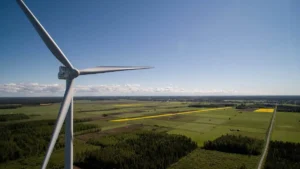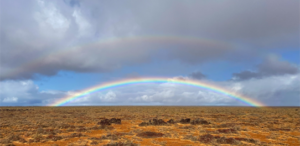They are the authors of books claiming to reveal the “real truth” about global warming and climate change – that it’s either all a hoax, that it’s overblown bad science from green ideologues or an elaborate illusion and wrongheaded nonsense.
You might have been intrigued by titles like “An Appeal To Reason: A Cool Look At Global Warming”, “The Climate Caper” or the subtle sledgehammer that was “Global Warming and Other Bollocks”.
But new research into the origins and authors of more than 100 of these climate science denial books finds almost all of them – about four out of five – are largely the products of conservative-leaning think tanks.
The research finds the books avoid traditional academic peer-review and are often written by non-experts. Dr Riley Dunlap, of Oklahoma State University, and Peter Jacques, of the University of Central Florida, have published their research – Climate Change Denial Books and Conservative Think Tanks: Exploring the Connection – in the journal American Behavioural Scientist.
Sponsoring books “espousing climate change denial” has been a key tool for conservative think tanks to get the climate science denial message out to corporations, politicians and media leaders.
They are clearly a vital weapon in the conservative movement’s war on climate science, and one of the key means by which it diffuses climate change denial throughout American society and into other nations.
Getting a book published helps authors to be seen as ‘climate experts’ even if they don’t have the relevant academic expertise. They get interviewed and quoted by mainstream media and name-dropped by conservative politicians and corporate bosses. “Books confer a sense of legitimacy on their authors and provide them an effective tool for combating findings of climate scientists,” the researchers say.
The study covers the publication of 108 books between 1982 and 2010. To qualify as a denial book, the authors had to either reject the position that global warming was happening, that it was caused by humans or that the impacts on society and the environment would be negative. When the researchers looked at the qualifications of the 106 authors, co-authors or editors of the books, they found less than 40 per cent had anything close to a relevant academic degree. None of the books were published by a university-affiliated publishing house and almost all were unlikely to have gone through any kind of academic peer-review.
The general lack of peer-review allows authors or editors of denial books to make inaccurate assertions that misrepresent the current state of climate science. Like the vast range of other non-peer-reviewed material produced by the denial community, book authors can make whatever claims they wish, no matter how scientifically unfounded.
The very first climate denial book, according to the study, was Sherwood Idso’s Carbon Dioxide:Friend or Foe published in 1982, but there were no more denial books until 1989, at which point three or four were produced each year.
But in 2007, the number spiked to 13. In 2008, there were 14; 2009 got 21 and 2010 had 15. The authors put the sudden surge of denialism on the bookshelves down to Al Gore’s 2006 film An Inconvenient Truth and the Intergovernmental Panel on Climate Change’s fourth major report which laid the blame for global warming primarily with human causes.
Most of the books covered have US origins, but the study also shows how they have been used to promote climate science denial in other nations, in particular the UK, Canada and Australia.
While not covered in the research, many of the conservative think tanks involved have accepted cash from fossil fuel interests over the years, including the Competitive Enterprise Institute, The Cato Institute, George C. Marshall Institute, and The Heartland Institute. Others, such as the Institute of Public Affairs in Australia or the Global Warming Policy Foundation in the UK, have consistently refused to reveal their donors.
Dr Dunlap told DeSmogBlog that it was hard to quantify accurately the impact the books had had on policy debates and the public perception of climate change science, but he said:
Keep in mind that they are just a small part of the wealth of material that conservative think tanks put out or help produce on climate change denial – there are reports, op-eds and TV interviews. But I do think that the better selling ones, almost always connected to a conservative think tanks, get a good deal of visibility. They are commonplace in major bookstores, where they are viewed if not bought by a huge number of people browsing the shelves. I think they clearly reinforce the message that climate change is not a threat, and maybe even a hoax, that is constantly put out by the conservative think tanks. Books tend to convey some degree of (false) credibility on their authors, allowing them to be viewed as “experts” despite their lack of scientific expertise. In the case of the successful books, I think this results in at least some interviews on TV and radio, and thus their messages are greatly amplified.
So what should readers do if they want to inform themselves on climate change? Dr Dunlap has some advice:
At a minimum, readers should be cautious if there is any indication that the authors or editors are affiliated with a conservative think tank and/or if the book is published by one. More generally, I strongly recommend that people consult Google Scholar to see if an author has credibility. If a book author is making contributions to the scholarly literature, he or she is going to have publications in peer-reviewed journals and be cited by others. I urge readers to be leery of anyone who is not publishing in scholarly journals and especially those who are not cited in such literature. Google Scholar, unlike the Science Citation Index, is freely available to everyone with access to Google, and lay people can learn a great deal more by consulting it that by simply browsing the web.







